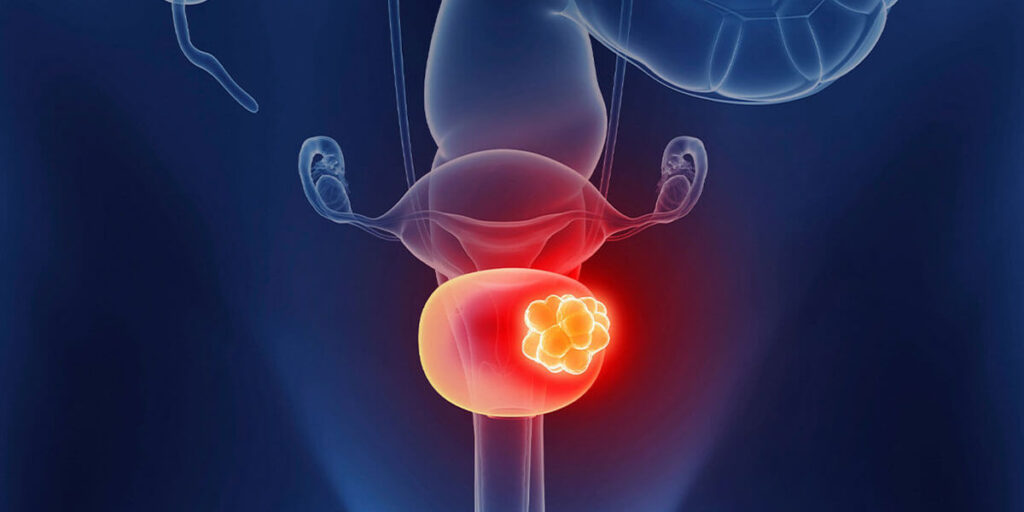
Overview
Bladder cancer originates in the urothelial (transitional) cells lining the inside of the bladder. It is a common urologic malignancy, especially in older adults, and more prevalent in men. The majority are non-muscle invasive urothelial carcinomas, but muscle-invasive forms are more aggressive.
Symptoms
- Blood in urine (hematuria) — most common
- Painful or frequent urination
- Urgency to urinate
- Pelvic pain (advanced cases)
- Lower back pain on one side
Causes & Risk Factors
- Smoking (major risk factor)
- Chemical exposure (dyes, rubber, textile, arsenic)
- Chronic bladder inflammation or infections
- Male gender and age >60
- Prior pelvic radiation or chemotherapy (e.g., cyclophosphamide)
Diagnosis
- Urinalysis and urine cytology
- Cystoscopy with biopsy (gold standard)
- CT urogram or MRI for staging
- Transurethral resection of bladder tumor (TURBT)
Treatment Options
- TURBT + intravesical therapy (e.g., BCG) for non-muscle invasive disease
- Radical cystectomy with or without urinary diversion for muscle-invasive disease
- Chemotherapy (e.g., cisplatin-based regimens)
- Immunotherapy (e.g., checkpoint inhibitors)
- Bladder-preserving trimodal therapy (select cases)
Prognosis
- Non-muscle invasive: high recurrence but low progression
- Muscle-invasive: prognosis depends on stage and treatment
- 5-year survival:
- Localized: ~70%
- Regional: ~35%
- Distant: ~6%
Living with this Cancer Type
- Long-term cystoscopic surveillance
- Lifestyle changes (e.g., smoking cessation)
- Managing urinary reconstruction or ostomy (if applicable)
- Psychological support and survivorship care
Prevention & Screening
- Stop smoking
- Reduce chemical exposures
- Monitor for hematuria in high-risk groups
- No routine screening unless high-risk occupation/history
FAQs
Q: Is bladder cancer curable?
A:Yes, especially in early-stage disease; lifelong surveillance is key.
Q: Can it come back?
A:Yes. It has a high recurrence rate even in low-grade disease.
Q: Do I need my bladder removed?
A:Only in muscle-invasive or recurrent aggressive cases.
Resources
- Bladder Cancer Advocacy Network (BCAN)
- American Urological Association
- ClinicalTrials.gov
Understand Precision Testing
Learn how liquid biopsy and chemo sensitivity testing can personalize your treatment plan.
Make Informed Decisions
Gain knowledge to actively participate in treatment discussions with your healthcare team.
Improve Treatment Outcomes
Discover how precision medicine and metabolic therapies can enhance treatment effectiveness.
Start Your Educational Journey Today
Empower yourself with knowledge about precision metabolic oncology and take an active role in your cancer care journey.
Need More Information?
Our team of oncology experts is here to help you understand your diagnosis and treatment options.
